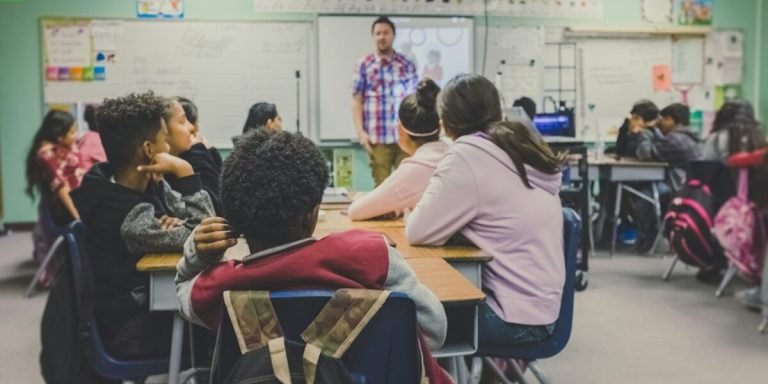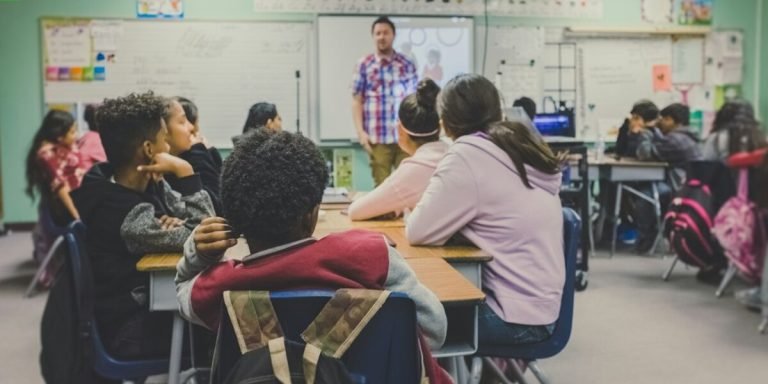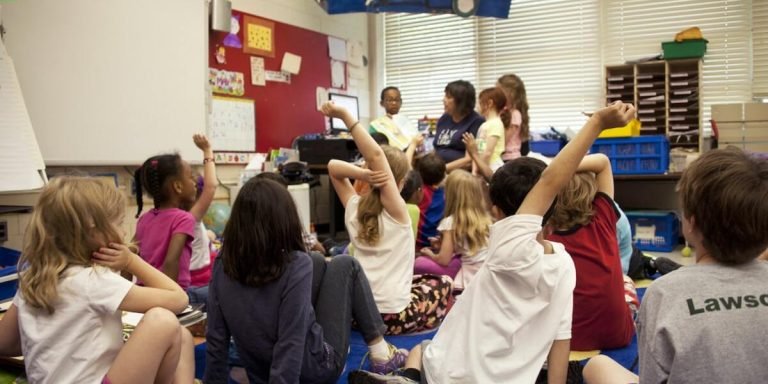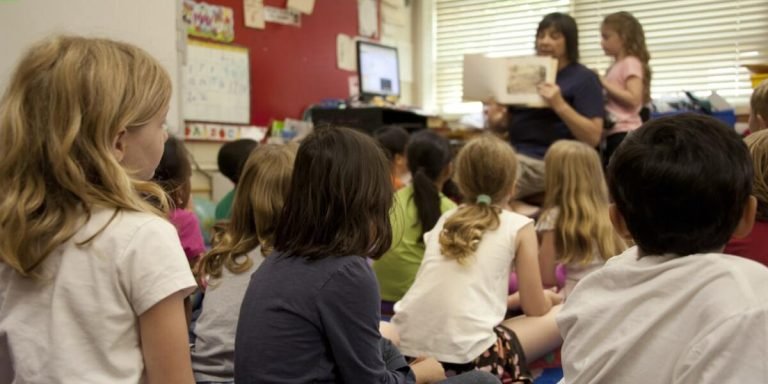Parent Teacher Meeting: A Guide for Effective Communication and Understanding
Navigating the educational journey of a child can sometimes feel like steering through an uncharted territory. One key aspect that bridges this gap, ensuring clarity and understanding for both parties involved, is ‘Parent Teacher Meeting’. This interaction plays a significant role in building stronger relationships between parents and educators.
In order to make these meetings more productive, they need to be approached with preparation and clear objectives on both ends. Parents are keenly interested in their children’s progress while teachers seek parental insight to strengthen students’ learning outcomes. Henceforth, we will delve into insights around effective communication strategies during Parent Teacher Meetings which would help foster greater comprehension and cooperation among participants.
Did you know?
Contrary to popular belief, research from Harvard Family Research Project shows that the most effective parent-teacher meetings aren’t limited to just academic progress discussions; they also focus on a child’s social and emotional development.
The Importance of Effective Communication in Parent-Teacher Meetings
Effective communication plays a pivotal role in parent-teacher meetings, especially in the context of integrating technology into education. As we navigate through 2023, this has become even more significant. The dynamic shift towards digital platforms for childhood learning demands that parents and teachers work collaboratively to create an effective educational environment.
Parent-teacher conferences offer excellent opportunities to discuss student progress holistically, encompassing both academic achievements and individual growth areas. It’s during these discussions where educators can introduce tech-based tools being utilized for classroom instruction as well as home-based learning support. By explaining how specific applications or programs aid their child’s cognitive development or problem-solving abilities, teachers can ensure parental understanding and buy-in.
For parents too, these meetings are crucial platforms to voice concerns about their children’s interaction with new technologies; whether it is screen time worries or difficulty adjusting to software interfaces employed by schools. While bridging gaps between traditional teaching methods and newer technological innovations might be daunting at first glance – rest assured that open dialogue fosters mutual understanding among stakeholders – amping up overall Parent-Educator Support quotient exponentially!
Strategies for Successful Dialogue Between Parents and Educators
The parent-teacher meeting is not just an annual event on the school calendar but forms a critical part of your child’s educational journey. By creating successful dialogues between parents and educators, we can promote better understanding, collaborative solutions and positive academic outcomes.
1. **Preparation:** Prior to the parent teacher meeting in 2023, both sides should prepare key points for discussion. Parents could focus on concerns or questions regarding their child’s progress while teachers might provide updates about student behavior, participation levels or learning issues.
2. **Clear Communication:** Strive towards clear communication where each side carefully listens before responding without assumption-making or interrupting.
3. **Emphasis On Collaborative Solutions**: Addressing specific concerns should be looked at as a joint problem-solving exercise rather than finger-pointing blame game from either end.
– Online platforms like Zoom facilitate virtual meetings that save travel time and allow more flexible scheduling options for busy parents.
– Digital tools such as shared documents ensure all parties have access to relevant data during discussions.
5. **Schedule Regular Follow Ups** : Scheduled follow-ups maintain momentum set by initial conversations ensuring sustained growth instead of one-time improvements only visible after yearly formal meetings.
Understanding the Role Active Listening Plays in PTA Conferences
Active Listening is an invaluable skill to bring into parent-teacher meetings, particularly in this digitally advanced era of 2023. Nurturing a dialogue between parents and educators that emphasizes clear understanding forms the heart of these conferences.
Imagine steering discussions that address your child’s academic progress, behavior patterns or even unique learning requirements with the assistance of technologically integrated solutions. In such scenarios, active listening becomes pivotal.
Digital platforms have transformed traditional PTA interactions into more engaging functions where both parties delve deeper into meaningful conversation spaces. Active listening here bridges any communication gaps while ensuring each concern gets attention and resolution.
Let’s unpack how active listening fits perfectly within parent teacher meeting settings:
1) **Promotes mutual respect**: When teachers listen actively during a conference it signals their respectful acknowledgement towards parental input – a gesture conducive for fostering open channels of communication.
2) **Facilitates better comprehension**: An educator’s ability to understand the issues at hand improves when they give undivided focus onto what parents communicate during discussions.
3) **Allows effective issue-resolution strategies** : A sound grasp over concerns allows teachers to develop suitable action plans using data from digital educational tools enhancing result-oriented objectives outcomings from collaboration sessions.
4) **Cements Stronger bonds:** Fostering genuine connections through attentive engagement opens up possibilities for stronger partnerships between home-school spheres set on molding successful future talent.
Building a Productive Agenda for Parent-Teacher Meetings
In today’s technology-driven age, parent-teacher meetings have evolved considerably. The integration of modern tech tools has transformed these interactions from simple face-to-face discussions to more dynamic platforms for robust conversations about a child’s educational progress.
Building a productive agenda for such meetings in 2023 demands familiarity with both digital communication channels and the essential elements of efficient online discourse. Let’s take an overview on how this can be achieved effectively.
Firstly, all parties should familiarize themselves with the various forms of educative technologies available today. This could range from learning management systems (LMS) that track student performance to digital portfolios showcasing their work and competencies. By making smart use of these resources in compiling reports prior to meeting parents, educators are better equipped to provide comprehensive insights into children’s academic journeys.
Secondly, it would help if teachers consider adopting flexible scheduling options using appointment setting software or virtual calendars when planning parent-teacher consultations. These ensure optimal convenience by allowing parents access at times that best suit them; thus fostering greater engagement during subsequent deliberations about their wards’ education plan.
Identifying Key Discussion Points Prior to the Meeting
In the era of advanced technology and digitization, parent-teacher meetings have taken a new shape. Identifying key discussion points prior to the meeting is integral for setting an effective agenda that benefits both parents and educators.
As we dive into 2023, it’s evident how modern communication tools can enhance these crucial interactions. With common ground established through email exchanges or online platforms before conventional meet-ups, both sides are better equipped with relevant information about student performance and potential learning strategies.
Select significant areas for your next parent-teacher meeting with these pointers.
Mention how technology has been integrated in classroom routines could spark discussions on whether children are getting adequately exposed or if any changes need to occur.
Touch upon the topic of digital citizenship – educating youngsters about their rights & responsibilities when they partake in this vast digital world sets them up for responsible future tech users.
How to Facilitate Constructive Feedback and Progress Updates
In today’s digital era, imparting constructive feedback and detailed progress updates during parent-teacher meetings has become a cornerstone for enhancing the overall educational experience of children. With technology integration in education rapidly becoming prevalent globally, it provides unique opportunities to make these interactions more insightful.
To facilitate constructive feedback during your next parent teacher meeting:
1. Use User-Friendly Technology: The first step is adopting user-friendly technologies like learning management systems (LMS). These platforms have tools such as e-portfolios where teachers can upload student work samples or grading rubrics to showcase proof of performance and growth over time.
2. Share Real-Time Data Analysis: Technological advancements in 2023 now allow real-time data analysis which aids educators provide immediate evaluations about students’ performances based on various parameters like engagement level, participation rate etc – making parents informed participants rather than passive spectators.
Thanks to our interconnected world, we no longer need progress updates to be an annual or semi-annual affair with cumbersome piles of paperwork; those days are behind us.
1. Implement Digital Progress Reports: Teachers can utilize digital portfolios that capture not just grades but also skills acquired by students over time – fostering transparent communication between educators and parents regarding academic achievements.
2.b Inculcate Habitual Communication Channels: Regular emails or app notifications that chart weekly progression milestones can help create habitual channels for consistent parental involvement whilst keeping them updated about their child’s constant development.
Fostering Collaborative Relationships Through Parent-Teacher Interactions
In this digital age, parent-teacher interactions have witnessed a transformative shift. Taking strides away from conventional face-to-face meetings, today’s educators harness the power of technology to foster collaborative relationships with parents. This evolution in communication has made it more convenient for both parties and encourages greater involvement on part of the parents – an aspect integral to their children’s holistic education.
Through mediums such as video conferencing tools or integrated school applications, teachers can update the child’s progress regularly while accommodating parent’s busy schedules. As we talk about updated pedagogical strategies in 2023 – teacher-parent interaction doesn’t end at progress reports; they’ve become spaces where constructive dialogues around individual student learning styles are discussed allowing personalized academics plans.
Moreover, integrating technology into these interactions opens up avenues for transparent sharing of classroom activities and resources that help align home-learning environments with those found inside schools’ realms. From virtual classrooms tours to shared online activity calendars — every facet contributes towards making parents feel included and valued underlining our firm belief: Education is indeed a collective responsibility.
Enhancing Student Success by Aligning Educational Goals
Fostering mutually respectful relationships between parents and teachers is a crucial cornerstone of any child’s educational development. In our increasingly connected world, these interactions are not just limited to traditional parent-teacher meetings but have evolved into continuous dialogues fostered through various digital mediums.
With technology integration in education becoming the new norm, it has helped forge collaborative partnerships where both sides can actively participate in shaping a child’s learning journey. Here we discuss ways this remarkable transformation offers an avenue for aligning educational goals to enhance student success.
The first step towards meaningful collaboration begins with clear communication channels employing ed-tech tools like emails or dedicated platforms designed for parent-teacher interaction. This ensures regular updates about classroom activities and academic performances reach parents seamlessly promoting effective engagement rather than waiting until conventional ‘parent teacher meeting’.
One major advantage of continual online communication lies in its ability to keep everyone on the same page regarding your school’s strategy and individual objectives for each learner.
Techniques for Sustaining Long-Term Engagement Post-Meeting
Parent-teacher meetings are a critical part of educating our youngsters. They present an opportunity to build stronger educational relationships, where parents and teachers can discuss the child’s progress openly. However, merely having these meetings is not enough; sustaining long-term engagement post-meeting is equally crucial for ensuring comprehensive child development.
Technology integration in education offers several techniques for educators and parents to communicate effectively after their parent-teacher meetings. Here are some tried-and-tested strategies to foster collaborative relationships through Parent-Educator interactions:
1. First off, use digital platforms creatively: In today’s digitized world, efficient utilization of technology becomes imperative as it creates avenues beyond traditional channels like emails or face-to-face dialogues.
2. Utilizing a common platform such as Google Classroom allows both parties to track the student’s progress easily together while keeping everyone updated about important school events or tasks due right from home.
3 Another excellent technique involves using mobile applications specifically designed for teacher-parent interaction – apps which offer real-time updates regarding academic performance alongside behavioral insights help maintain continuous dialogue between all concerned stakeholders without binding them within physical location constraints.
4 Additionally remember cyber security always comes first; hence ensure your preferred mode adheres strictly to privacy norms so neither party risks data theft during their interactions.
5 Lastly encourage periodic virtual follow-up sessions – this offers ample space & flexibility on schedules thus avoiding time crunch seen in conventional settings thereby making each conversation count towards better future planning.
Conclusion
Wrapping up, mastering the art of effective communication in parent teacher meetings is no small feat. It’s a dance between understanding and collaboration that requires patience, empathy, and dedicated effort from both sides. But with this guide at your fingertips, deciphering the nuances will certainly become an easier task – all leading to formulating strategies for optimal teaching and learning outcomes.
Continue navigating through our website where you’ll find more resources tailored specifically towards providing simplifying yet comprehensive insights into child education practices. Whether you are a parent or an educator seeking support or guidance in this unique journey of shaping young minds, there lays an abundance of information just waiting to be explored!







